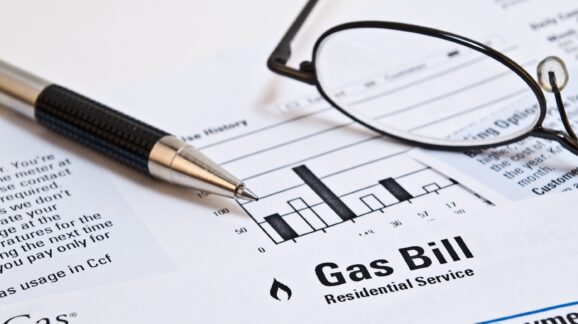Cold truth about government pushing electric: Natural gas is much cheaper

Photo Credit: Getty
The Department of Energy (DOE) has repeatedly documented that using natural gas in homes is far cheaper than using electricity.
This hasn’t stopped the Biden administration from trying to limit the use of natural gas in homes or some state and local governments from proposing and passing bans on natural gas hook-ups for new residential construction.
With winter, and the home heating challenges that come with it, fast approaching, these cold truths should be of serious concern for homeowners and policymakers.
Now there’s yet another federal government report highlighting these differences in costs. The Energy Information Administration (EIA) recently released its Winter Fuels Outlook. This document addresses possible scenarios for the cost of various sources of heating this winter.
EIA’s analysis sheds light on what we should be watching for winters ahead. Energy expert Robert Bryce, points out that for the coming winter, electric heating for households is projected to cost 77 percent more on average than natural gas. The discrepancy is even steeper for the Northeast in particular, where electric heat is projected to be 92 percent more expensive than gas.
Home heating is a major budget item for a lot of people in cold parts of the country. Policies at all levels of government that limit Americans to more expensive heating options are harmful. This includes policies like the one in New York state that would ban new natural gas furnaces in most new buildings by 2029. It also includes DOE’s final rule that would make it more difficult for people to purchase new gas furnaces.
Cost concerns are not the only problem with government policies that that are trying to stop people from using natural gas. Natural gas heating and cooking, and the electric grid currently exist in parallel. For homes with natural gas heating, if the power goes out, there’s still heat and usually a water heater and maybe even a stove capable of operating on natural gas. In an all-electric house, if a winter storm takes the power out for a few days, there’s nothing much to fall back on.
If grid capacity doesn’t expand at the same time as more homes and businesses move to electric heating, the mismatch in demand and supply may only become apparent during a time of grid stress—namely very cold days. Government meddling in this only serves to make blackouts more likely.
When it comes to personal energy decisions, people know best what will work for their homes and families. Policymakers should respect the individual personal energy choices of Americans and block this dangerous and costly electrification agenda.